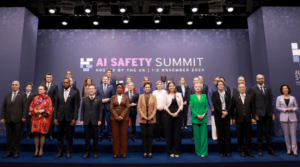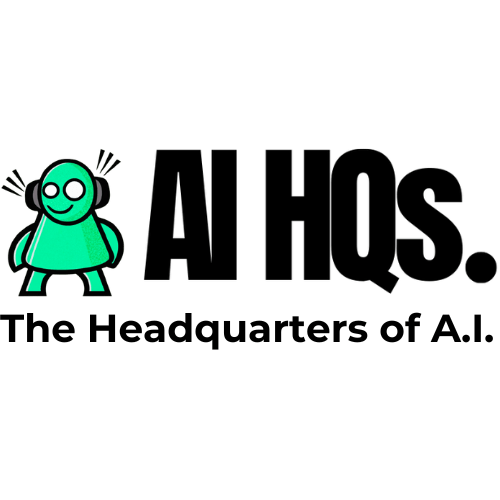AI Safety Summit – International Cooperation on AI Safety: Just policies or actual tangible effort?
Artificial Intelligence (AI) is undeniably one of the most transformative and promising technologies of our time. Its applications span various domains, from healthcare and education to transportation and beyond. However, with great power comes great responsibility, and the rapid advancements in AI technology have raised concerns about the potential risks associated with its deployment. In response to these concerns, an international summit known as the AI Safety Summit, hosted by the UK, brought together representatives from 28 countries, including the US, EU, Australia, and China, to address the challenges and responsibilities surrounding advanced AI systems.

The Bletchley Declaration: A Call for International Cooperation
The summit culminated in the signing of “The Bletchley Declaration,” a landmark agreement that highlights the potential risks posed by advanced AI systems and calls for international cooperation to ensure the responsible deployment of AI. The declaration acknowledges the profound impact of AI on society and underscores the need to manage its development with care and oversight. The declaration reads, “There is potential for serious, even catastrophic, harm, either deliberate or unintentional, stemming from the most significant capabilities of these AI models.” This statement emphasizes the urgency of addressing the risks associated with AI and the importance of taking a collective approach.
The event brought together a diverse group of stakeholders, including government representatives, tech industry leaders, civil society groups, and AI experts. Notable attendees included Vice President Kamala Harris, Tesla CEO Elon Musk, and representatives from major tech companies such as Google, Microsoft, and OpenAI. This diverse representation reflects the global consensus on the need for collective action in addressing AI safety. Elon Musk, a prominent advocate for AI safety, voiced his concerns during the summit, stating, “For the first time, we have a situation where there’s something that is going to be far smarter than the smartest human… It’s not clear to me we can actually control such a thing.” Musk’s stance aligns with the belief that advanced AI could pose unprecedented challenges that demand immediate attention.
AI: Opportunities and Risks
The Bletchley Declaration recognizes the dual nature of AI, acknowledging both its tremendous potential for human progress and the significant risks it poses. AI systems are already integrated into various aspects of daily life, from healthcare and education to accessibility and justice. With the increasing use of AI, it is essential to strike a balance between embracing its capabilities and mitigating its potential dangers.
A central focus of the declaration is on what it terms “frontier AI,” referring to highly capable, general-purpose AI models and narrow AI systems with potential harm-causing capabilities. These systems could surpass human intelligence and exhibit unpredictable behaviors. The declaration underscores that the risks associated with these advanced AI models are not fully understood and can be hard to predict.
The specific areas of concern include cybersecurity, biotechnology, and the potential amplification of risks such as disinformation. The declaration’s warning is clear: there is a potential for catastrophic harm, whether intentional or unintentional, stemming from these advanced AI systems.
International Collaboration: The Way Forward
One of the key takeaways from the AI Safety Summit is the recognition that many of the risks associated with AI are inherently international in nature. Addressing these risks requires global cooperation and shared responsibility. The declaration calls for inclusive collaboration among countries, independent experts, and AI labs to establish shared safety protocols for AI design and development. These protocols will ensure that AI systems are “safe beyond a reasonable doubt.”
The commitment to working together to ensure the safety and responsible use of AI is a significant step towards building a global framework for AI regulation. While the declaration does not set specific policy goals, it signals a clear intent to cooperate and address the broad range of AI risks collectively.
Despite the consensus reached at the summit, the AI community exhibits a certain level of divergence in its views on AI safety. Some experts and organizations, including AI ethicist Timnit Gebru and Dr. Emily Bender, question the urgency of the existential risks associated with AI. They argue that the primary concerns lie elsewhere, such as the concentration of power, social bias, and environmental implications.
There is also uncertainty around the definition of “more powerful than GPT-4,” the AI model mentioned in the open letter published by the Future of Life Institute. The letter, signed by Elon Musk and other prominent figures, calls for a pause in training AI systems more advanced than GPT-4. While the intention is clear, the practical implementation of such a request remains ambiguous.
The Role of Governments and Regulation
The debate on AI safety also extends to the role of governments and the need for regulation. While some advocate for stricter regulation to ensure the responsible development of AI, others, like the UK, focus on maintaining a pro-innovation approach. In the US, the Biden administration has proposed an “AI Bill of Rights” to protect against AI harms but offers guidelines rather than binding regulations.
The Future of Life Institute, which published the open letter, urges immediate action to limit the growth of AI research if “all key actors” do not agree to slow down voluntarily. The institute also suggests that governments should step in and institute a moratorium if needed.
The AI Safety Summit marks a significant step towards addressing the complex challenges posed by AI. The commitment to international cooperation and safety protocols sets the stage for future discussions and actions. While the path forward may be riddled with debates and differing perspectives, it is clear that the global community recognizes the importance of managing AI’s impact on society responsibly.
AI’s transformative potential cannot be denied, but ensuring its safe and ethical development is paramount. As the AI community, governments, and international organizations continue to grapple with these challenges, one thing remains certain: the future of AI will be shaped by collaborative efforts and shared responsibility.
Conclusion
The Bletchley Declaration and the open letter from the Future of Life Institute highlight the pressing need to address the risks associated with advanced AI. While there may be differing opinions on the urgency and nature of these risks, the global community is taking significant steps towards international cooperation and shared safety protocols. The journey towards responsible AI development is just beginning, and it is essential to balance the incredible opportunities that AI offers with the potential risks it poses. By working together, we can navigate the evolving landscape of AI and ensure that it benefits humanity as a whole.







